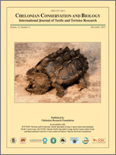
CHELONIAN CONSERVATION AND BIOLOGY
Scope & Guideline
Advancing chelonian conservation for a sustainable future.
Introduction
Aims and Scopes
- Conservation Biology:
The journal emphasizes research that contributes to the conservation of turtle and tortoise species, including population assessments, habitat evaluations, and conservation strategies. - Ecological Studies:
Research on the ecology of chelonians, focusing on their roles within ecosystems, habitat requirements, and interactions with other species. - Behavioral Research:
Investigations into the behavior of turtles and tortoises, including nesting, foraging, and social interactions, to better understand their life history strategies. - Physiological and Morphological Studies:
The journal includes studies on the physiological traits and morphological variations among different species, contributing to taxonomic insights and evolutionary biology. - Genetic and Population Genetics:
Research that explores the genetic diversity, population structure, and conservation genetics of chelonian species, which is critical for effective management strategies. - Impact of Human Activities:
Evaluating the effects of human activities, such as habitat destruction, pollution, and climate change, on turtle populations and their habitats.
Trending and Emerging
- Use of Technology in Research:
There is a noticeable increase in studies employing technology, such as wildlife cameras and unmanned aerial vehicles, to gather data on turtle behavior and nesting patterns, enhancing research accuracy and efficiency. - Climate Change Impact Studies:
Research examining the effects of climate change on chelonian populations, including nesting success and habitat viability, is gaining traction as conservationists seek to address this pressing global issue. - Conservation Genetics:
An emerging trend in the journal is the focus on conservation genetics, exploring genetic diversity and population connectivity, which are crucial for developing effective management strategies. - Behavioral Ecology:
Increased interest in the behavioral ecology of turtles, including social behaviors and movement patterns, is highlighted in recent publications, contributing to a better understanding of species adaptations. - Human-Wildlife Interactions:
Research assessing the impact of human activities on turtle populations, including bycatch in fisheries and habitat encroachment, is becoming more prominent, reflecting the need for integrated conservation approaches.
Declining or Waning
- Traditional Taxonomy:
Research focused solely on traditional taxonomic classifications without integrating genetic data appears to be decreasing, as the field moves towards more comprehensive genetic approaches. - Generalized Habitat Studies:
Studies that provide broad overviews of habitats without specific conservation implications or detailed ecological assessments are becoming less frequent, as there is a push for more targeted research. - Descriptive Studies:
Papers that primarily describe species without addressing conservation implications or ecological interactions are on the decline, as the journal increasingly favors applied research.
Similar Journals
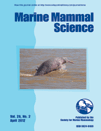
MARINE MAMMAL SCIENCE
Advancing marine mammal research for a sustainable future.MARINE MAMMAL SCIENCE, published by Wiley, is a premier journal dedicated to advancing the field of marine mammal research since its inception in 1985. With an impressive impact factor and categorized as Q1 in both Aquatic Science and Ecology, Evolution, Behavior and Systematics, this journal serves as a vital platform for innovative research and findings in marine biology, conservation, and ecology. It ranks 165th out of 721 in the Scopus category of Ecology, Evolution, Behavior and Systematics and 65th out of 247 in Aquatic Science, showcasing its influence and relevance in the academic community. Covering a wide range of topics, from behavior and anatomy to conservation and habitat management, MARINE MAMMAL SCIENCE aims to foster a deeper understanding and promote proactive strategies for the preservation of marine mammals. Researchers, professionals, and students will find invaluable insights and the latest advancements in this journal, contributing significantly to the discourse on marine conservation and ecology.
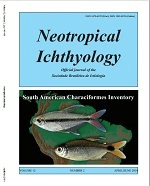
Neotropical Ichthyology
Exploring the depths of Neotropical fish biodiversity.Neotropical Ichthyology is a prestigious open-access journal published by the SOC BRASILEIRA ICTIOLOGIA, dedicated to advancing the field of ichthyology within the Neotropical region. Since its inception in 2003, the journal has provided a vital platform for researchers, professionals, and students to disseminate significant findings related to fish biology, ecology, and conservation. With an impact factor that is reflected in its impressive Q1 ranking in Animal Science and Zoology and Q2 rankings in both Aquatic Science and Ecology, Evolution, Behavior and Systematics, it stands as a leading resource for cutting-edge research. Located in Brazil, at the UNIV SAO PAULO, the journal not only contributes to scientific knowledge but also fosters collaboration among ichthyologists dedicated to the rich aquatic biodiversity of the Neotropical region, ensuring that critical insights into fish species, habitats, and conservation strategies are accessible to a global audience.

JOURNAL OF ORNITHOLOGY
Connecting Science and Conservation for BirdsJOURNAL OF ORNITHOLOGY, published by Springer Heidelberg, is a leading international journal dedicated to the study of birds and their conservation. With an ISSN of 2193-7192 and an E-ISSN of 2193-7206, this journal serves as a crucial platform for disseminating innovative research focused on avian biology, ecology, and behavior, making significant contributions to the fields of Agricultural and Biological Sciences and Animal Science and Zoology, where it holds a commendable rank of #156 out of 490 in Scopus. Established from 2004 and continuing through 2024, the journal strives not only to advance academic scholarship but also to inform practical conservation efforts globally. While currently not open access, it remains a vital resource for researchers, professionals, and students seeking high-quality studies and findings that influence the understanding and preservation of bird species. The journal's commitment to excellence in science highlights its importance in ornithological research, offering insights that are both profound and actionable.
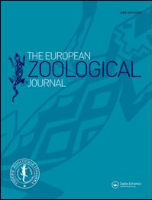
European Zoological Journal
Exploring the Wonders of ZoologyEuropean Zoological Journal, published by Taylor & Francis Ltd, is an esteemed open-access publication dedicated to advancing the exciting field of zoology. Since its inception in 2017, this journal has progressively established itself as a vital resource for researchers, professionals, and students alike. With its Q2 ranking in Animal Science and Zoology as of 2023, the journal ranks in the 69th percentile among its peers, showcasing its influence and contribution to the discipline. The journal’s broad scope covers a wide range of topics within zoology, aiming to foster an understanding of animal biology and conservation efforts. As an open-access journal, it not only enhances the dissemination of knowledge but also encourages collaborative research across global communities. Situated in the United Kingdom, the European Zoological Journal invites submissions that contribute to the evolving discourse in animal sciences, and endeavors to support the scientific community in addressing pressing ecological challenges.
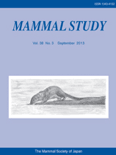
MAMMAL STUDY
Exploring the diverse world of mammals and their ecosystems.Mammal Study, published by the Mammalogical Society of Japan, is a leading academic journal dedicated to the field of mammalogy and related biological sciences. Since its inception, it has provided a critical platform for researchers, professionals, and students to share their findings and insights into the diverse facets of mammalian biology, ecology, and conservation. The journal, with ISSN 1343-4152 and E-ISSN 1348-6160, is recognized for its rigorous peer-review process and has attained a commendable Q3 ranking in the 2023 category of Animal Science and Zoology. With an impact factor reflecting its growing influence—ranking 283 out of 490 in Scopus—we welcome contributions that advance the understanding of mammalian species and their habitats. While access to published articles is through traditional channels, the journal aims to reach an even wider audience by fostering greater awareness and appreciation for mammalian research and conservation efforts. The Mammal Study has converged years of insightful publications from 2008 to 2024, solidifying its position as a vital resource in the biological sciences.
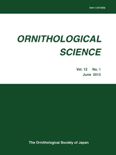
ORNITHOLOGICAL SCIENCE
Celebrating the intricacies of bird life and ecology.ORNITHOLOGICAL SCIENCE, published by the Ornithological Society of Japan in collaboration with the University of Tokyo, stands as a pivotal platform for advancing knowledge in the field of ornithology. With a keen focus on avian biology and conservation, this esteemed journal is dedicated to publishing high-quality research, reviews, and technical notes that explore the intricacies of bird science. Although currently categorized within the Q4 quartile in Animal Science and Zoology, the journal aims to elevate its standings by fostering scholarly communication and impactful scientific discourse. This journal has been consistently publishing since its inception in 2002, with a brief hiatus before resuming its invaluable contributions to the scientific community in 2009. Despite the absence of specific open access options, the journal remains a crucial resource for researchers, professionals, and students seeking to expand their understanding of avian ecology and behavior. Through its comprehensive scope, ORNITHOLOGICAL SCIENCE reflects the increasing importance of ornithological studies in addressing global biodiversity issues and conservation challenges.

Redia-Journal of Zoology
Elevating research in zoology and beyond.Redia-Journal of Zoology, published by the CRA-Research Centre Agrobiology & Pedology in Italy, is a distinguished academic journal dedicated to advancing the field of zoological studies through high-quality research and insightful reviews. With an ISSN of 0370-4327, this journal provides a platform for scholars and practitioners in the Agricultural and Biological Sciences to disseminate their findings and engage in meaningful discourse. Recognized in the 2023 Scopus rankings as Q2 in its category, Redia occupies a notable position within the global research community, ranked 138 out of 221 in Agricultural and Biological Sciences. The journal has a commitment to publishing original research from 2011 until 2024, contributing to the body of knowledge in diverse sub-disciplines of zoology, ecology, and conservation. While currently not open access, Redia strives to foster collaboration and discussion among researchers, making it a vital resource for advancing zoological sciences.
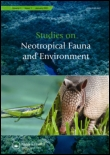
STUDIES ON NEOTROPICAL FAUNA AND ENVIRONMENT
Advancing Knowledge on Fauna and Environmental DynamicsSTUDIES ON NEOTROPICAL FAUNA AND ENVIRONMENT is a distinguished academic journal published by Taylor & Francis Ltd, dedicated to advancing the fields of Animal Science, Zoology, and Ecology. With an ISSN of 0165-0521 and an E-ISSN of 1744-5140, this journal has been a significant outlet for scholarly research since its inception in 1976, continuing to provide critical insights into neotropical biodiversity and the environmental intricacies of this rich ecological region through 2024. Recognized in the Q3 category for both Animal Science and Ecology, the journal ranks at #232/490 in Animal Science and Zoology and #402/721 in Ecology, marking it as a valuable resource for researchers, professionals, and students interested in ecological and zoological studies. By offering a platform for innovative research and comprehensive reviews, the journal aims to bridge the gap between theory and practical application, facilitating a deeper understanding of the unique challenges and conservation strategies relevant to neotropical ecosystems. Although not an open-access journal, it plays a crucial role in fostering academic discourse and knowledge dissemination in its field, ensuring that critical advancements in understanding neotropical fauna and environmental dynamics reach a diverse and engaged audience.
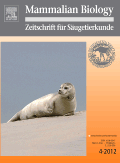
MAMMALIAN BIOLOGY
Connecting Scholars Through Open Access Mammalian StudiesMammalian Biology is a premier peer-reviewed journal published by Springer Heidelberg, dedicated to the field of mammalogy and related disciplines. With an impressive impact factor and categorized within the top quartiles (Q1 and Q2) of Animal Science, Zoology, as well as Ecology, Evolution, Behavior, and Systematics, this journal serves as a vital platform for researchers and scholars to disseminate high-quality research findings. The journal’s open access options enhance visibility and accessibility, vital in today's collaborative research environment. Since its inception in 2001, Mammalian Biology has fostered a comprehensive understanding of mammal ecology, behavior, and conservation strategies, ensuring its significant contribution to the field. With a broad scope that encompasses evolutionary studies to ecological assessments, it promises to be an essential resource for professionals and students alike who aim to keep abreast of the latest advancements in mammalian studies. Located in Germany, the journal continues to thrive, adapting to emerging scientific inquiries and supporting the ongoing dialogue in mammalogy until at least 2024.
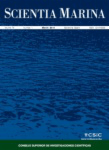
SCIENTIA MARINA
Unveiling Ocean Mysteries Through Open Access ResearchSCIENTIA MARINA, an esteemed journal published by the Consejo Superior Investigaciones Cientificas (CSIC) in Spain, focuses on critical studies within the fields of Aquatic Science and Oceanography. With an Open Access policy since its inception in 1998, this journal facilitates widespread dissemination of research findings, significantly enhancing accessibility for researchers, professionals, and students alike. Currently, SCIENTIA MARINA holds a Q3 ranking in both categories for 2023, demonstrating its commitment to advancing knowledge in marine and aquatic environments. With a convergence of research years from 1996 to 2024, it remains a pivotal platform for innovative research, encompassing various aspects of marine biology, ecology, and environmental science. The journal serves as an essential resource for scholars aiming to contribute to the understanding and preservation of marine ecosystems.